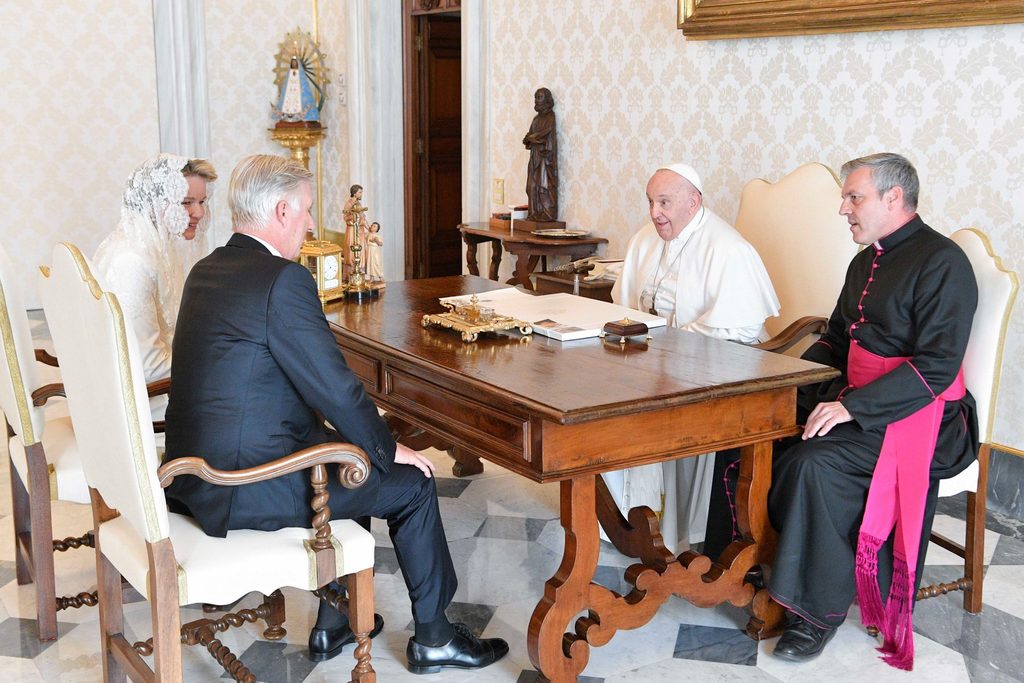Belgium's King Philippe (63) and Queen Mathilde (50) were received at the Vatican for a private audience with Pope Francis on Thursday. The timing of the visit raised some eyebrows in Belgium.
The Royal Couple and the Pope reportedly discussed the situation in the Democratic Republic of the Congo (DRC) after the Pope's visit earlier this year, the war in Ukraine and Belgium's new archbishop.
The King also invited the Pope to come to Belgium next year, as part of the 600th anniversary of KU Leuven and UCL. It had been 2015 since the Royal couple had met with the Pope.
Back then, the Queen wore a brace and walked on crutches due to a skiing accident – a big contrast to Thursday, when she wore a white dress and veil in lace. Wearing white in the presence of the Pope is a privilege that only Catholic queens have, the so-called 'privilège du blanc.' Other women meeting the pope must traditionally dress in black.
Yet the timing of the visit has raised eyebrows in Belgium – particularly in Flanders following a much-discussed documentary called 'Godvergeten' (loosely translated as "Godforsaken" in English) about sexual abuse in the church.
De-baptising
The four-part documentary, which is airing on the Flemish broadcaster VRT in primetime this week and can also be viewed online, has sparked a wave of public debate about the role of the church in Belgium and the amount of taxpayer money it still receives.
A number of people, including several public personalities, have announced that they decided to get "de-baptised" as a symbolic act to distance themselves from the institute of the church.
Related News
- 'Toxic warehouse' of child sexual abuse: EU urged to 'get a grip' on spiralling problem
- More people distancing themselves from Catholic Church in Belgium
- 59 reports of sexual abuse in the Church in Belgium in 2020
In practice, getting de-baptised means that your name is removed from the baptism register. This can be done by sending a letter or an email to the diocese where you were baptised (not necessarily the diocese where you live) stating that you want to leave the Roman Catholic Church.
Thereafter you will receive an official notice when your name is removed from the register, some weeks after the request. For the Church, however, every baptised person does remain a baptised person, whether you are still on the register or not.

